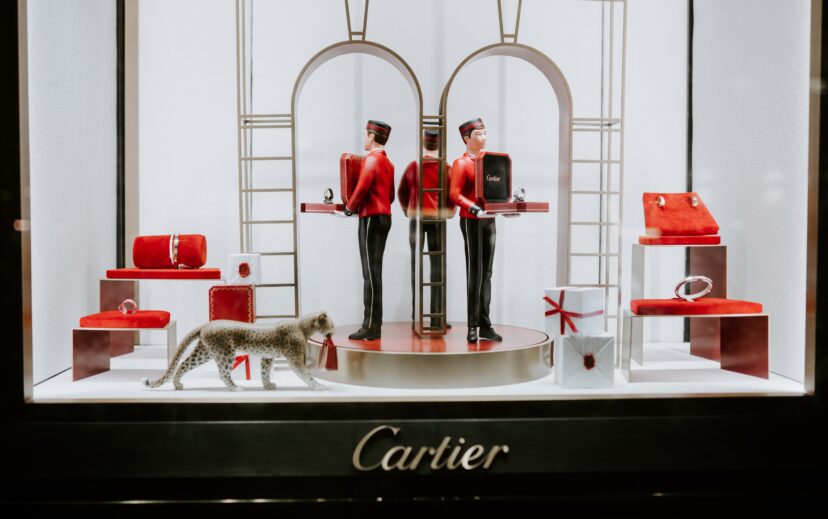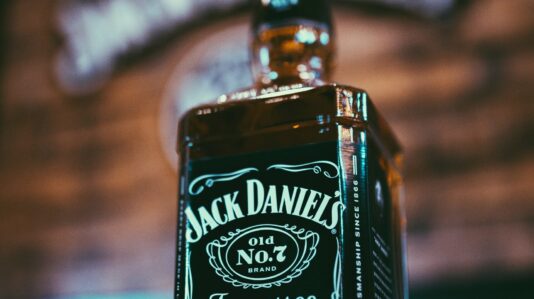The iconic jewelry brand, Cartier, is perhaps best known for its LOVE bracelet design. The LOVE collection now encompasses jewelry including necklaces, rings, and earrings. In June 2022, Cartier and Amazon jointly filed a pair of lawsuits against several social media account holders for promoting and selling cheap counterfeit Cartier jewelry, including the famous LOVE collection, on Amazon’s stores, infringing Cartier’s trademark and Amazon’s policies.
What are the Allegations?
The lawsuits were filed in the federal District Court for the Western District of Washington and are currently pending. According to Cartier and Amazon, various social media accounts featured Cartier’s jewelry in 64 Instagram posts which included descriptions of Cartier’s jewelry with links to purchase the items on Amazon’s platform. However, when users clicked on these links to buy the products, they were redirected to unbranded items on Amazon. Amazon contends that these people circumvented its robust counterfeit detection software by uploading vague and unbranded images of Cartier’s jewelry and delivered counterfeit LOVE jewelry to the customers.
The core of each of Cartier and Amazon’s complaints is trademark infringement and false designation. Specifically, Cartier asserts that the defendants advertised, marketed, and sold jewelry that was “identical or substantially indistinguishable” from Cartier’s. Cartier and Amazon further argue that these actions are likely to deceive and confuse customers of Cartier and Amazon, adversely affecting their business reputations and customer relations.
Cartier’s Trademark Infringement Claim
To succeed in a trademark infringement case, Cartier must prove two key elements: (1) it owns a valid and protectable trademark and (2) the defendants’ use of the mark is likely to cause confusion among consumers.
Cartier has a pretty solid trademark infringement claim. First, Cartier owns and has been using the word marks including CARTIER and LOVE BRACELET continuously in commerce. Moreover, the marks are registered with the United States Patent and Trademark Office. Federal registrations may allow a trademark owner to seek treble damages and attorneys’ fees in court against counterfeiters.
Second, with respect to likelihood of confusion, the district court of Washington must consider the factors established by the Ninth Circuit Court of Appeals in AMIF v. Sleekcraft Boats [1]: (1) the strength of the mark, (2) the proximity of the goods, (3) the similarity of the marks, (4) evidence of actual confusion, (5) the marketing channels used to promote the products, (6) the type of goods and the carefulness of likely consumers, (7) the defendant’s intent, and (8) the likelihood that either party will expand into new markets.
On one hand, Cartier’s targeted customers may be sophisticated enough to tell that real Cartier jewelry is unlikely to sell cheaply on social media platforms. On the other hand, Cartier’s strong mark and product similarity may favor its case. Additionally, in cases that involve counterfeiting, courts often find the use of counterfeit a “hard core” or “first degree” trademark infringement. In Cartier’s case, if the defendants indeed advertised and sold identical or substantially indistinguishable jewelry with Cartier’s mark without authorization, their products are likely to be considered counterfeit, favoring Cartier’s case.
False Designation of Origin Claims
False designation of origin claims occurs when a defendant falsely attributes the origin or brand of a product, misleading consumers about its source. Cartier and Amazon contend that the defendants misled and confused consumers, including those who visited Amazon’s website, about the origin and authenticity of products associated with Cartier’s trademark. To succeed in this claim, they must demonstrate that (1) there are goods involved, (2) interstate commerce is affected, and (3) a false designation of origin exists.
Cartier and Amazon have strong arguments for the first two elements, as the jewelry involved constitutes goods, and the alleged infringers used social media and Amazon, a global website, to promote their products.
For the third element ― false designation of origin ― Cartier and Amazon can likely prove it by showing that Cartier’s mark is valid and that consumers would likely be confused due to the alleged counterfeit products. Amazon’s policy prohibits sale of counterfeit products. If consumers rely on this policy, they may be confused and falsely assume that the LOVE jewelry sold by defendants is authentic Cartier jewelry.
Potential Obstacles to Amazon and Cartier
Procedurally, however, Amazon and Cartier can encounter challenges identifying the actual persons behind those social media accounts. As the cases develop, it appears that serving the court papers on the defendants may be another struggle as well, given that many of the defendants may not be located in the U.S. or have a physical address discoverable online.
What Happens if Cartier and Amazon Win?
If successful, Cartier may recover treble damages and attorneys’ fees. Amazon might receive similar remedies. Ultimately, Cartier and Amazon appear to have strong cases, given the alleged actions of the defendants and the protections offered by trademark law.
Conclusion
Trademark infringement matters can be complex and typically require a detailed analysis of the law and facts. If you are a trademark owner facing similar issues, it is advised that you speak with an experienced attorney to understand your rights and the best course of action.
[1] AMIF Inc. v. Sleekcraft Boats, 599 F.2d 341 (9th Cir. 1979).



